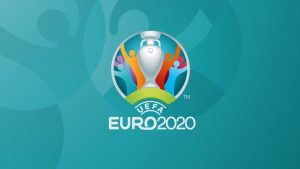 UEFA’s comprehensive measures against potential match-fixing at UEFA EURO 2020 were based on two main pillars: education and prevention on the one hand, and monitoring and intelligence on the other.
UEFA’s comprehensive measures against potential match-fixing at UEFA EURO 2020 were based on two main pillars: education and prevention on the one hand, and monitoring and intelligence on the other.
Government authorities and the general public are increasingly aware of the risks posed by match-fixing. UEFA EURO 2020 was a major opportunity to further raise awareness of the issue, build capacity among and between all the stakeholders concerned, from the football community to the law enforcement authorities, and promote transnational cooperation.
How was the action plan prepared?
The anti-match-fixing action plan for EURO 2020 relied on the lessons learned from EURO 2016, as well as on best practices adopted by other organisations for major sports events.
Risk assessment, risk mitigation and comprehensive monitoring lay at the heart of the action plan, which involved analysing existing trends and standards from the betting sector, and encompassing a comprehensive view of relevant regulations and legislation in order to engage the network that UEFA has been working with for over a decade, as well as the relevant authorities in all the host countries.
How were the participating national associations involved?
UEFA’s anti-match-fixing unit, which sits within the organisation’s integrity and regulatory division, worked closely to implement the action plan with the national association integrity officers of the 24 participating national teams.
The unit stressed the importance of each association holding awareness sessions for participating players and staff to underscore the risks and rules related to sports betting and match-fixing. In cooperation with the national integrity officers, the unit prepared a presentation highlighting how players can be targeted, and their duty to report any approaches made to them directly or that they become aware of.
Following two online workshops organised by the anti-match-fixing unit, the integrity officers tailored the presentation to their national context before delivering it to their respective national teams during the pre-tournament training camps. In total, more than 600 players attended these education sessions.
Despite the COVID-19 context and related health constraints, a large majority of the sessions were delivered in person by the integrity officers, with the rest taking the form of online sessions.
Were the EURO 2020 referees briefed as well?
All of the appointed referees and video assistant referees (VAR) also received a tailored integrity briefing in sessions led by members of the anti-match-fixing unit in person during the opening week of the tournament. As elite referees who are used to taking charge of high-profile matches, the match officials had all attended previous similar prevention sessions as part of their UEFA training.
The EURO 2020 presentation, introduced by UEFA Referees Committee chairman Roberto Rosetti by video, emphasised the risks of the referees being targeted by specific betting markets, and urged them to report any suspicious behaviour.
How were the matches monitored and any incidents assessed?
In coordination with the Council of Europe, UEFA had established the Anti-Match-Fixing Assessment Group (AMFAG) dedicated to monitoring the tournament and supporting UEFA in addressing any integrity-related concerns. This followed the signing of a Memorandum of Understanding between UEFA and the Council of Europe in 2018, in which the two bodies agreed to implement common strategies in areas of shared interest.
The AMFAG was composed of representatives of UEFA, the Council of Europe, six host countries belonging to the Network of National Platforms (referred to as the Group of Copenhagen), Europol and Interpol.
The group has met regularly since January 2021, and also convened frequently during the tournament to share information and highlights on past and upcoming matches. It collected and analysed all relevant information, including betting monitoring reports, participants and match information, alerts received through reporting mechanisms and other sources, ad hoc queries, local observations and media screening.
The anti-match-fixing unit also collaborated closely with various betting monitoring entities, notably Sportradar, the International Betting Integrity Association (IBIA) and the Global Lottery Monitoring System (GLMS). In addition, the unit liaised permanently with Europol’s European Financial and Economic Crime Centre (EFECC) and the EURO 2020 International Police Cooperation Centre, where an Interpol Major Events Support Team (IMEST) was also deployed to ensure outreach beyond the European Union’s borders not only on security matters, but also on integrity issues coming under the remit of the Interpol Match-Fixing Task Force.
Was there really a risk of match-fixing at EURO 2020?
The probability of match-fixing at EURO 2020 could be considered as low. The EURO is the highest-profile national team competition in Europe and is watched all over the world. This heightened attention around the tournament and had a deterrent effect on match-fixers.
In addition, the vast majority of the participants were elite professional players who are less vulnerable to approaches from match-fixers, and highly motivated to perform to their best while representing their national team.
Nevertheless, it was essential that all precautions were taken and that strong monitoring and surveillance were established, not only to be able to detect, assess and react to any suspicion, but also to use the opportunity to build capacity and bridges between all stakeholders involved in tackling match-fixing on the international stage.
UEFA is committed to favouring cooperation and coordination at all levels to preserve the integrity of football matches and competitions throughout Europe. This campaign was given additional impetus earlier this month, when the UEFA Executive Committee decided to increase the resources dedicated to the fight against match-fixing.
The action plan focuses on strengthening cooperation with relevant international and local authorities, as well as increasing expertise and support for the key persons fighting match-fixing at national and international level, in particular UEFA member associations’ integrity officers.
 Arunava about Football A look at football & the world through my eyes!
Arunava about Football A look at football & the world through my eyes!



